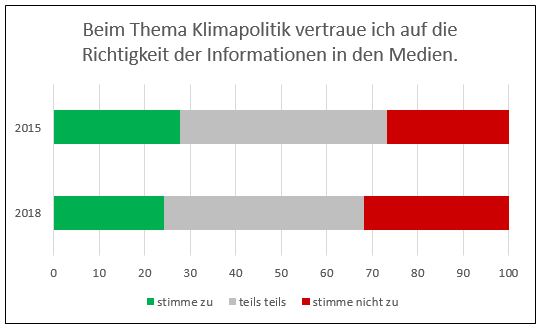Experts and Pundits During Crisis on (TV) News

During crises, the role of news media is crucial. They are expected to deliver coherent, science-based information, promote transparency, and act as responsible intermediaries between governmental authorities and the public. When it comes to climate issues, media face additional challenges due to the complexity and scale of related events.
Klima-Zeitenwende in der ARD? – Ein Jahr “Wirtschaft vor acht”

Seit mehr als 22 Jahren ist einer der besten Sendeplätze der ARD, kurz vor der Tagesschau, dem Thema Finanzmarkt vorbehalten. Aus “Börse vor acht” wurde im März 2022 “Wirtschaft vor acht”. In einer Pressemitteilung kündigte die ARD an: “Ein Schwerpunkt ist das Themengebiet Ökonomie/Ökologie.” Grund genug, nach einem Jahr genauer auf die Inhalte des neuen […]
2020 on Twitter – Was there a topic besides Covid19?
After the outstanding year 2019, attention for climate change on Twitter in the past year quickly dropped to the level from the years 2018 and before. The harsh decline directly coincides with the rising worldwide attention for the “new” Corona virus later named Covid19, which caused the global pandemic the world is still struggling with. […]
2019 on Twitter: Climate activism awakening
Shortly before 2020 is over, we will have a look back at 2019 to map the climate change debate as reflected transnationally on Twitter. Compared with the two years prior, 2019 showed a particular abundance of climate-related tweets: While the total tweets count of 2018 grew by 8% from 2017, the total count of 2019 grew by 70%. Then what triggered the climate discourse so much on Twitter that year?
Climate change reporting abounds in September
Our colleagues at the University of Colorado Boulder Media and Climate Change Observatory (MECCO) have spotlighted a long-time high in newspaper reporting about climate change – a trend we can substantiate with our own data on other news outlets. In September, media attention to climate change and global warming was at its highest level globally […]
Wer vertraut denn heute noch den Medien?

Ein durchaus besorgniserregender Befund unserer Forschung ist ein mangelndes Vertrauen der deutschen Bevölkerung in die Medienberichterstattung zum Klimawandel. In der deutschlandweiten Umfrage unseres Projekts „Down to Earth“ war die größte Gruppe unentschlossen, ob sie den Medien bei diesem Thema vertrauen soll. Die zweitgrößte Gruppe vertraute den Medien nicht; nur eine Minderheit vertraute ihnen (siehe Grafik). […]
New article published: Climate politics in the media – the audience is expecting more
In an article for the German journal “Media Perspektiven”, we analysed our survey data from 2015 and 2018, focusing on media use and evaluation of the coverage related to the topic of climate change and climate politics. The article is available here (open access, German only). In einem Artikel für die Fachzeitschrift “Media […]
IPCC Report Trumps Trump: Climate Change on Twitter in 2018
While Donald Trump was responsible for most peaks in the Twitter debate on climate change in recent years, 2018 was different: a scientific report trumped Trump in triggering the most intensive Twitter debate related to climate change. As in previous years, we take a look at the Twitter data our Online Media Monitor (OMM) has […]
First results of our new survey

During the first week of the recent COP 24 in Katowice/Poland, we reran our survey from 2015 and questioned a sample of German nationals about their climate change knowledge and attitudes. The German newspaper DIE ZEIT published an article about our first results – here is a summary for our English speaking readers:
Is German Climate Coverage driven by extreme temperatures? Partly.
Recent weeks have not only brought about record-breaking temperatures, but also a rise in climate coverage, as clearly shown by our Online Media Monitor (OMM) on Climate Change Coverage around the world [1]. But are higher-than-usual temperatures really the main trigger of climate change reporting? We had a closer look at the case of Germany: […]
